Picture this: you’re on a third date, laughing over coffee, and things are clicking. Your date leans in, shares something personal, and suddenly, your stomach knots up. Your brain’s screaming, “They’re getting too close what if they see the real me?” You wanna bolt, not because you don’t like them, but because closeness feels like walking into a trap. If this hits home, you might be dealing with a fear of intimacy, and trust me, you’re not alone. 😓

This article’s all about why getting close to someone can feel so scary and how you can start to ease that fear without freaking out. We’ll dig into what fear of intimacy is, why your brain and body might see closeness as a threat, and practical ways to build safety in relationships. For more on handling tough emotions, check out our post on Emotional Self-Care: Why You Need It. Plus, Verywell Mind has a great breakdown on the psychology behind this fear. Oh, and keep an eye out for an infographic to help you spot the signs of fear of intimacy before it takes over. Ready to make closeness feel a little less scary?

Quick Boundaries Quiz to Check Yourself
Not sure if your boundaries are helping or hurting?
Take the quick quiz to see where you stand
Just in 3 Min
Part of the Emotional Boundaries series
What Is Fear of Intimacy?

Fear of intimacy is that gut-twisting anxiety you get when a relationship romantic, platonic, or even familial starts getting too close for comfort. It’s not just shyness or wanting space; it’s a deep-seated fear of being emotionally or physically vulnerable with someone. According to WebMD, about 17% of adults in Western cultures deal with this, so it’s way more common than you might think.
This fear can show up in different ways, like avoiding deep conversations, pulling back when things get serious, or even sabotaging relationships before they get too real. It’s not that you don’t want connection most people with this fear crave it but letting someone in feels like handing them a map to your weaknesses
For me, it hit hard in my early 20s. I was dating this amazing person, and everything was great until they started sharing deeper feelings. I’d get this weird urge to change the subject or make a joke, anything to keep things light. I didn’t even realize I was doing it until they called me out, saying, “You always dodge the serious stuff.” That’s when I knew something was up. 😅
Why Does Intimacy Feel So Threatening?
So, why does getting close to someone feel like stepping into a lion’s den? It’s not just random there’s a mix of psychological, emotional, and even biological reasons behind it. Here’s the breakdown:
- Past Relational Wounds: If you’ve been hurt before maybe a parent left, a partner betrayed you, or you faced abuse your brain might link closeness with pain. Healthline says childhood trauma, like neglect or loss, often sets the stage for this fear.
- Fear of Vulnerability: Being open feels like losing control. If you let someone see your flaws, what if they judge you or leave? That fear of exposure can make intimacy feel like a risk not worth taking.
- Perfectionism: If you’re a perfectionist, you might worry that being “fully seen” means showing your messy, imperfect side. I used to think I had to be flawless to be loved, which made opening up terrifying.
- Attachment Issues: According to attachment theory, how you bonded with caregivers as a kid shapes how you connect as an adult. If your parents were inconsistent or emotionally unavailable, you might’ve developed an avoidant or anxious attachment style, making intimacy feel unsafe.

I remember growing up with a dad who was super busy and rarely around. When I tried to share my feelings, he’d brush me off, saying, “Toughen up.” Over time, I learned that opening up wasn’t safe, so I built walls. It wasn’t until I started therapy that I saw how those early moments shaped my fear of closeness
How Fear of Intimacy Shows Up
Fear of intimacy isn’t always obvious it can be sneaky, hiding behind behaviors you might not even notice. Here are some ways it might pop up in your life:
- Pulling Away: When a relationship starts getting deep, you find reasons to distance yourself, like picking fights or getting “busy.”
- Creating Conflict: You might start arguments over small stuff to avoid getting too close. I once got mad at a partner for leaving dishes out, but really, I was freaking out because they wanted to talk about our future.
- Choosing Unavailable Partners: Ever notice you’re drawn to people who are emotionally distant? It’s like your brain picks them because they’re “safe” from real intimacy.
- Struggling to Express Needs: Asking for what you need or accepting love feels impossible. You might deflect compliments or brush off support.
- Feeling Numb: When someone gets close, you might shut down emotionally, like your heart’s on lockdown.

Take Sarah, a 29-year-old entrepreneur. She’s charming and has tons of friends, but every time a relationship gets serious, she finds flaws in her partner and bails. She tells herself they’re not “the one,” but deep down, she’s terrified of being hurt again after a bad breakup. That’s fear of intimacy in action, and it’s more common than you think.
Why Your Nervous System Fears Intimacy
Your nervous system’s like a built-in security system, always scanning for threats. When you’ve got a fear of intimacy, closeness can feel like a danger zone. Here’s why:
- Attachment Wounds: If you grew up with caregivers who were inconsistent or hurtful, your nervous system might’ve learned that closeness equals pain. When someone gets too close, it triggers that old fight-or-flight response.
- Protective Defenses: Your brain might use avoidance, control, or even criticism to keep people at a distance. It’s not you being cold it’s your body trying to protect you.
- Fear of Losing Autonomy: Intimacy can feel like you’re giving up control or losing yourself. If you’ve been hurt before, your nervous system might scream, “Don’t let them in!”
- Hyper-Independence: For some, being super independent is a survival strategy. Relying on others feels risky, so you keep your walls up.

I noticed this when I started dating someone new. Every time they’d try to hold my hand or share something deep, my chest would tighten, and I’d feel this urge to run. It wasn’t them it was my body saying, “Nope, too risky!” Learning why my nervous system was freaking out was the first step to calming it down.
How to Build Intimacy Tolerance Gently
Overcoming fear of intimacy isn’t about diving headfirst into deep relationships it’s about taking small, gentle steps to feel safe being close. Here are five practical ways to build your tolerance for intimacy, with real examples to show how it works:
1. Normalize Your Body’s Reaction

Your fear isn’t a flaw it’s your nervous system trying to keep you safe. When you feel that knot in your stomach, try saying, “My body’s just protecting me, but I’m safe now.” This helps you see the fear as a reaction, not the truth.
I started doing this when I felt anxious about sharing feelings with my partner. I’d take a deep breath and say, “This is just my brain being cautious.” It didn’t fix everything, but it made me feel less broken.
2. Practice Micro-Moments of Vulnerability
You don’t have to spill your deepest secrets right away. Start small share a little worry or joy with a trusted friend. Maybe say, “I’m kinda stressed about work,” or “I’m really excited about this book I’m reading.”
I tried this with my friend Alex. Instead of keeping things surface-level, I said, “I’ve been feeling off lately work’s been tough.” He listened, and it felt like a tiny bridge to closeness. Over time, those small shares made bigger ones easier.
3. Anchor Into Nervous System Safety
Before and after vulnerable moments, use grounding techniques to calm your body. The 5-4-3-2-1 method is great: name five things you see, four you can touch, three you hear, two you smell, one you taste. It pulls you back to the present.
I keep a smooth stone in my pocket to hold when I’m nervous about opening up. It’s like a little anchor that says, “You’re okay.” Healthline says grounding can reduce anxiety by calming your fight-or-flight response

4. Reframe Intimacy as Shared Safety
Instead of seeing intimacy as exposure, think of it as creating a safe space with someone else. Healthy closeness means both of you can be real without fear. Try telling yourself, “Intimacy isn’t losing myself it’s building trust together.”
When I started dating my current partner, I was scared to open up. But I realized they weren’t trying to “expose” me they just wanted to know me. That shift made closeness feel less like a threat.
5. Honor Your Intimacy Pace
You don’t have to rush into deep connection. Move at a speed that feels okay for you, and communicate that to your partner. Say, “I love spending time with you, but I need to take things slow.”
I told my partner, “I get nervous when things move fast can we ease into the deep stuff?” They were totally cool with it, and it made me feel safe to keep going. Talkspace suggests being patient with yourself as you build intimacy tolerance.

The Role of Emotional Boundaries
Emotional boundaries are like guardrails they keep you safe while letting you connect. If you fear intimacy, boundaries can help you control the pace of closeness, making it feel less overwhelming. For example:
 Set Limits: If deep talks make you anxious, say, “I’m not ready to go there yet, but I’d love to talk about something lighter.”
Set Limits: If deep talks make you anxious, say, “I’m not ready to go there yet, but I’d love to talk about something lighter.” Protect Your Space: It’s okay to need alone time. Tell your partner, “I need a night to myself to recharge.”
Protect Your Space: It’s okay to need alone time. Tell your partner, “I need a night to myself to recharge.” Be Clear About Needs: Instead of bottling up, say, “I’m feeling overwhelmed can we slow down?”
Be Clear About Needs: Instead of bottling up, say, “I’m feeling overwhelmed can we slow down?”
I used to think boundaries meant pushing people away, but they’re actually about creating space for healthy connection. When I started setting boundaries, like saying no to late-night heart-to-hearts when I was drained, I felt more in control and less scared of closeness. Check out our post on Self-Care in Relationships for more on this

Supporting a Partner with Fear of Intimacy
If your partner struggles with fear of intimacy, it can feel confusing or even hurtful. But it’s not about you it’s about their internal wiring. Here’s how to help:
- Be Patient: Don’t push them to open up before they’re ready. Let them know you’re there when they’re ready to talk.
- Create Safety: Show you’re reliable and non-judgmental. Say, “I’m here for you, no matter what.”
- Encourage Therapy: Gently suggest professional help if their fear’s causing distress. The Calm Blog recommends therapy like CBT for addressing intimacy issues.
- Communicate Clearly: Use “I” statements, like, “I feel closer when we share our feelings can we try that?”
My partner used to pull back when I’d get emotional, and it hurt. But when I learned it was their fear of intimacy, I stopped taking it personally and started giving them space. It made a huge difference.
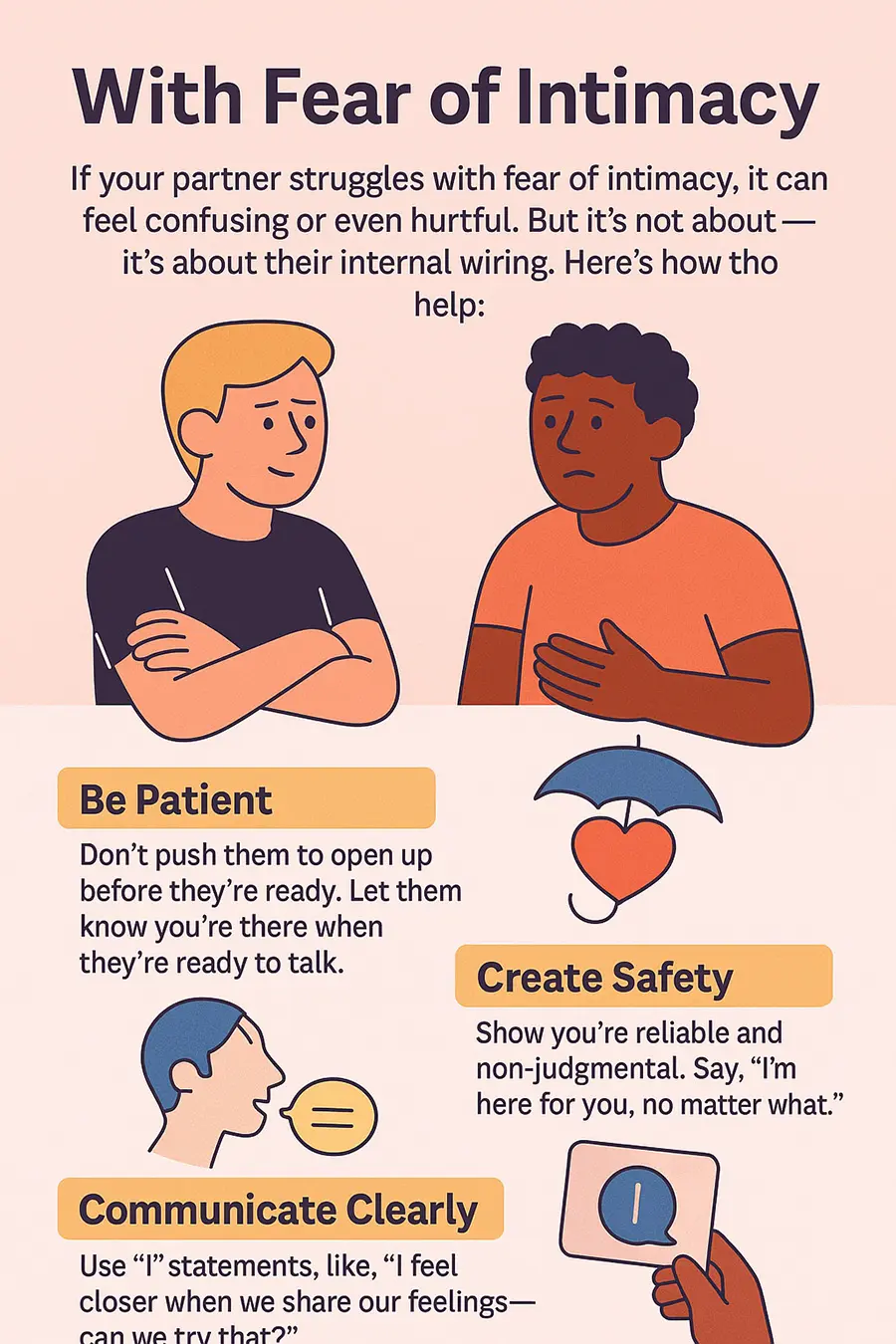
Fear of Intimacy in the LGBTQ+ Community
For folks in the LGBTQ+ community, fear of intimacy can be amplified by societal pressures or identity struggles. Rejection from family, discrimination, or internalized shame can make closeness feel extra risky. A friend of mine who’s queer said they avoided deep relationships because they feared judgment about their identity.

Finding affirming spaces, like LGBTQ+ support groups or online communities, can help. My friend joined a queer book club and started sharing small bits of their story there. It was like a safe testing ground for vulnerability. If you’re part of the community, seek out spaces where you can be yourself without fear it’s like a warm hug for your heart. 😊
The Science Behind Fear of Intimacy
Your fear of intimacy isn’t just in your head it’s in your body too. When closeness feels threatening, your amygdala, the brain’s fear center, lights up, triggering a fight-or-flight response. This pumps out cortisol, the stress hormone, making you feel anxious or panicked. Psychology Today says about 17% of adults in Western cultures deal with this fear, often tied to early attachment wounds.
Attachment theory explains a lot. If your caregivers were inconsistent or hurtful, your brain might’ve learned that closeness equals pain. This can lead to avoidant or anxious attachment styles, where you either push people away or cling too tightly. A 2013 study in PLoS Medicine found that strong social connections lower depression risk by 25%, showing how vital intimacy is for mental health.

Grounding techniques, like deep breathing or the 5-4-3-2-1 method, can calm your nervous system by reducing cortisol and activating the parasympathetic system, which helps you relax. Over time, these practices can rewire your brain to see intimacy as safe, not scary.
| Impact | Statistic | Source |
|---|---|---|
| Depression Risk | 25% lower with strong connections | PLOS Medicine |
| Anxiety Reduction | 30% decrease with grounding techniques | Healthline |
| Heart Disease Risk | 67% increase with poor mental health | Bradley University |
FAQ
Your nervous system might be protecting you from past pain, like rejection or betrayal. It’s not that you don’t want love it’s that your body’s learned it’s risky. Practice small moments of vulnerability to retrain your brain.
Not at all! You can build intimacy tolerance while in a relationship, especially with a supportive partner. Go at your own pace and communicate your needs.
It might not vanish entirely, but it can get way softer with practice. Therapy, grounding techniques, and safe relationships can make intimacy feel less threatening over time.
Be honest with them. Say, “I get anxious about closeness it’s not about you, it’s something I’m working on.” A good partner will want to support you.
Yup, it’s a common defense mechanism. Your brain might shut down emotions to avoid feeling vulnerable. Try grounding techniques to stay present.

How to Start Building Intimacy Tolerance
- Normalize Your Fear: Say, “My body’s just trying to keep me safe,” when you feel anxious about closeness.
- Try Small Shares: Tell a friend something small, like, “I’m stressed about work.” See how it feels.
- Ground Yourself: Use the 5-4-3-2-1 technique before a deep talk to calm your nerves.
- Set Boundaries: Say, “I need to take things slow,” to control the pace of intimacy.
- Reframe Intimacy: Think of it as shared safety, not exposure. Write down, “Closeness can be safe.”
- Seek Therapy: A therapist can help you explore the roots of your fear and build new patterns.
- Be Patient: It’s okay if it feels hard at first. Celebrate small wins, like sharing one feeling.
Conclusion
Fear of intimacy can make closeness feel like a minefield, but it doesn’t have to stay that way. By understanding why your brain sees connection as a threat, practicing small steps of vulnerability, and building emotional safety, you can start to let people in without freaking out. You don’t need to be perfect to be loved you just need to be you, flaws and all.
So, tonight, try one thing. Share a small feeling with a friend or take a deep breath before a deep talk. You’re not alone in this, and with time, intimacy can feel like a warm embrace, not a trap. You got this. 😊

Related resources:
- Verywell Mind: Defines fear of intimacy (a.k.a. intimacy avoidance), explores its causes such as trauma or abandonment and highlights how it can sabotage relationships by leading people to pull away emotionally or physically.
- Healthline: Offers an overview of intimacy fear, explaining how it may push individuals toward self-isolation or relationship sabotage, and emphasizes the importance of therapy and patience in overcoming it.
- Psychology Today: Shows how fear of intimacy quietly undermines closeness by keeping emotional walls up, and suggests self-awareness as the first step toward meaningful connection.
- Talkspace: Explores how fear of vulnerability often rooted in early trauma or neglect impacts intimacy, and underlines the value of gentle support and therapy to help people feel safe opening up.
- Calm (The Calm Blog): Lists five signs of intimacy fear like pulling away when relationships deepen and offers mindful strategies to gradually build comfort with closeness.
Don’t miss related articles:
✨ Last updated on 10.08.2025
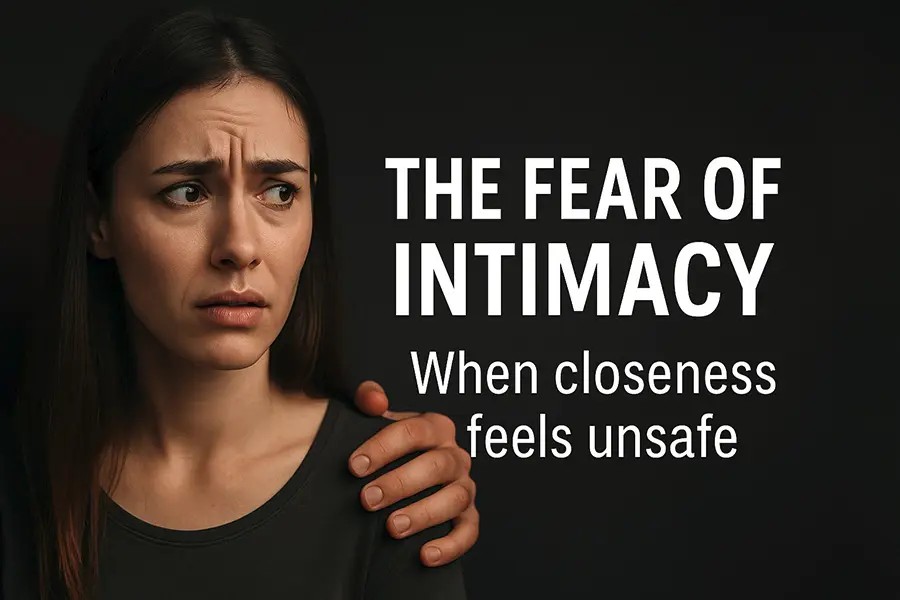

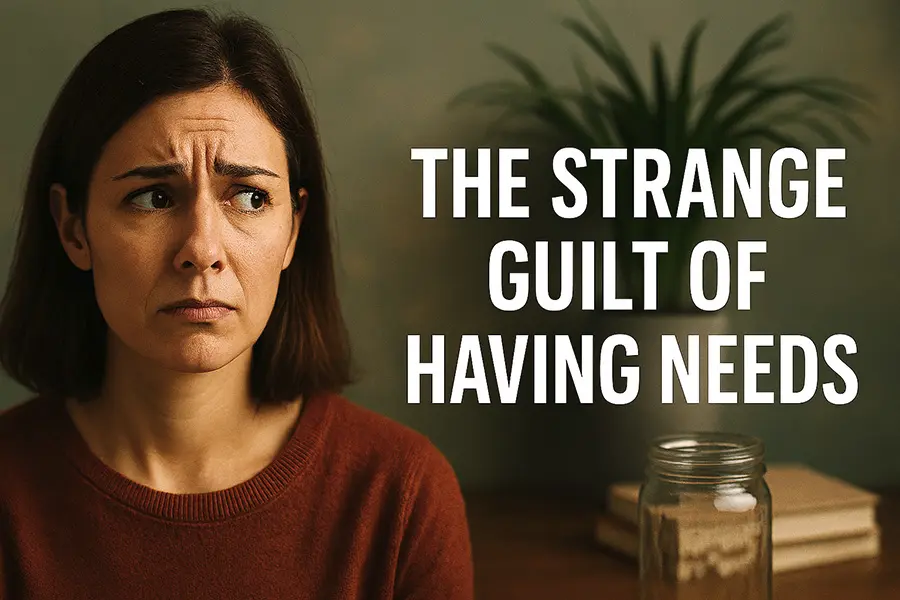

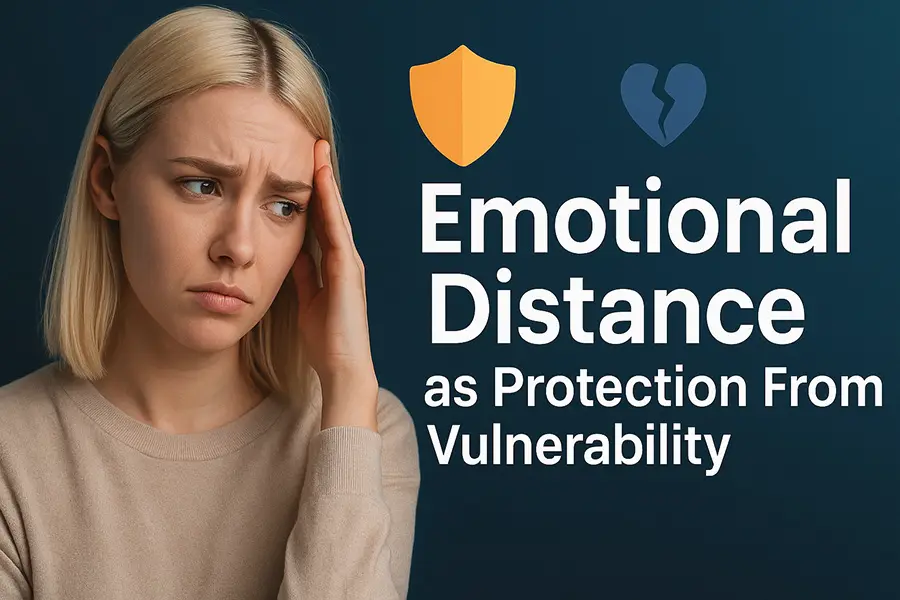
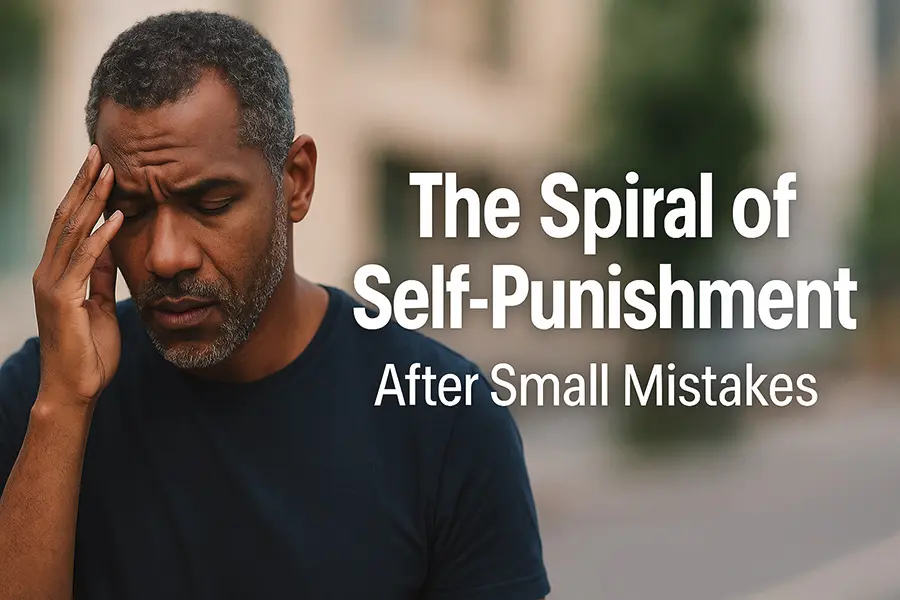










Leave a Reply